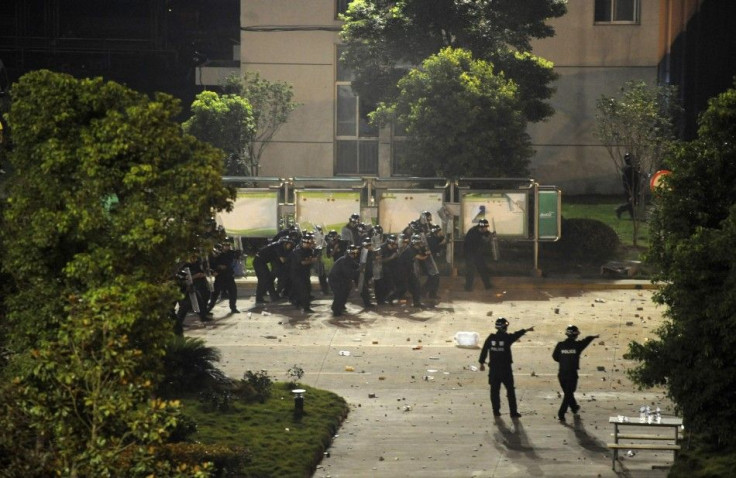Protesters Shut Down Another Chinese Factory Over Pollution Fears

Hundreds of local protesters have forced the shutdown of a solar panel factory in Haining City in Zhejiang province in eastern China over pollution fears.
The three-day demonstration -- by some 500 local residents -- were prompted by the deaths of a large number of fish in a nearby river. According to local government officials, high levels of fluoride were detected in water samples from the river.
Protesters managed to break into the plant owned by Jinko Solar Holding Co. (NYSE: JKS), destroy offices, damage property and even overturn company vehicles before riot police moved them out.
According to BBC, residents accused the solar panel manufacturers of dumping toxic chemicals into the water supply.
We feel that it is socially responsible to close the factory first and to take corrective measures, company spokesman Thomas Jing told the BBC.
Chinese media also reported that villagers blamed the factory’s pollution for causing at least 31 cases of cancer in the nearby village of Hongxiao.
A local resident named Shi Shuiqiang complained to Reuters: Common people like us have no way of measuring the pollution. We don't even know anything about whether there is any pollution.”
Another resident named Ren Suifen noted: “Since they set up their operations here, there has definitely been an impact on the villagers here. We do not know how our health will be in the future. This pollution is definitely harmful to us.”
Jing conceded that the plant had accidentally discharged chemicals into the local water streams during a storm last month. He added that the company will investigate whether or not the fluoride emissions killed the fish and added that a clean-up of the area has commenced.
Reuters also reported that company officials have also apologized for the toxic waste it may have released into the environment.
Company spokesman Jing Zhaohui told a news conference: Jinko has always paid a great deal of attention to environmental issues and complies with and follows the state's relevant demands. In the course of doing so, this incident still happened, and we cannot shirk responsibility for the legal consequences which have come from management slips.”
However, state media reported that the factory’s waste disposal systems have been failing pollution tests since last April.
In addition, the Haining city government officials said in a statement: [We will] go all out to maintain stability and seriously deal with those who are suspected of violating laws in the incident in accordance with the law.”
The government will also comprehensively review the company’s production procedures related to its emission of wastewater and gas wastes.
China’s rapid economic growth has been accompanied by wanton disregard for the environment by companies eager to manufacture products for sale overseas. Unlike in Europe and the United States, stringent environment standards simply do not exist, or are callously ignored.
However, local residents and environmentalists have been increasingly vocal in their opposition to such destructive policies by Chinese corporations. Recently, protesters were able to temporarily close two Shanghai factories over fears they were causing lead poisoning. Thousands of residents in the northeastern city of Dalian protested to shut down a paraxylene chemical plant, also over pollution fears.
© Copyright IBTimes 2025. All rights reserved.





















